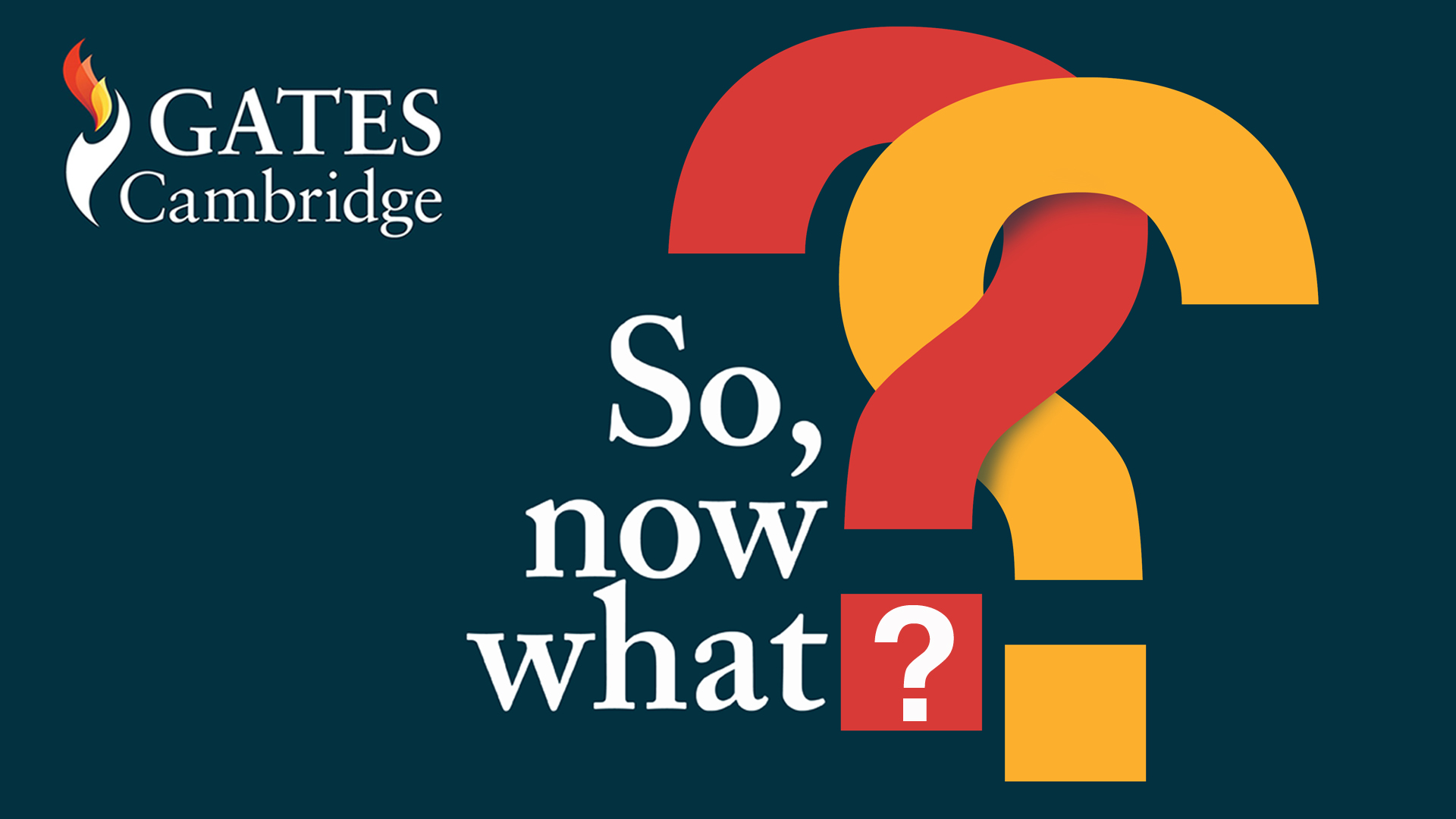
Gates Cambridge Scholars from India, the US and China debated the human impact of climate change in the third episode of the Gates Cambridge podcast
For a long time in weather and climate data in the United States, our data sets and the communication from the national government was very numbers driven...But numbers are only meaningful if you connect them to something that is in your life.
Victoria Herrmann
Three Gates Cambridge Scholars from China, the US and India are taking part in the third episode of the Gates Cambridge podcast, So, now what? which is out today [26th March] as part of the Cambridge Festival’s Festival of Podcasts.
The episode, featuring Victoria Herrmann [2015], Songqiao Yao [2014] and Ramit Debnath [2018] and hosted by broadcast journalist Catherine Galloway, explores the topic of extreme weather and its impact on communities and asks: What does extreme weather mean for us?
The speakers highlight the importance of connecting research to real-world impacts and the need for collective action. They discuss the devastating losses of climate disasters, the challenges of adaptation and the power of nature. They also emphasise the importance of empowering marginalised communities and amplifying their voices in climate action.
In addition, the episode explores innovations in policy, including capacity building, local action and storytelling – getting local communities affected by climate change to tell their stories.
The speakers conclude by encouraging listeners to ask questions, take climate action, and connect to local initiatives.
Dr Ramit Debnath is a university assistant professor and an academic director at the University of Cambridge. He is a fellow of Churchill College and Cambridge Zero and has visiting role at Caltech. Ramit sits on the steering committee of Cambridge’s new Centre for Human-Inspired AI (CHIA). With a background in electrical engineering and computational social sciences, Ramit designs collective intelligence approaches to provide a data-driven, complex system-level understanding of barriers to climate action in the Anthropocene, their interactions, and how these translate to leverage points for policy and behavioural interventions at scale.
Songqiao Yao is the founder of WildBound, an innovative sustainability and education venture that empowers sustainability leadership through expeditions, advocacy and creative expressions. Prior to founding WildBound, Songqiao gained her interdisciplinary and cross-cultural experience as a researcher, activist and entrepreneur working on global issues such as food, water and climate change. She has worked on China-EU, China-US projects on climate change and has consulted for agriculture and private sector development in Sierra Leone, Zimbabwe and Ethiopia.
Victoria Herrmann is a National Geographic Explorer, Director of the Preserving Legacies Project and Assistant Research Professor at Georgetown University’s Walsh School of Foreign Service where her research focuses on Arctic cooperation and politics and climate change adaptation in the US and US Territories. Until recently, she was the president and managing director of The Arctic Institute. She has been named on Forbes 30 Under 30 list, the National Trust for Historic Preservation’s 40 under 40 list, a North American Young Leader by Friends of Europe and one of 100 Most Influential People in Climate Policy worldwide by Apolitical.
The fourth episode of the podcast on the role of culture as an agent of peace will air on the last Tuesday of April with Alice Musabende [2016], Senior Political Advisor at the UN Security Council, Sara Habibi [2011], who works for the Division for Peace at the United Nations Institute for Training and Research, and Ukrainian poet Iryna Shuvalova [2016].
*You can download the podcast by clicking here or below.












